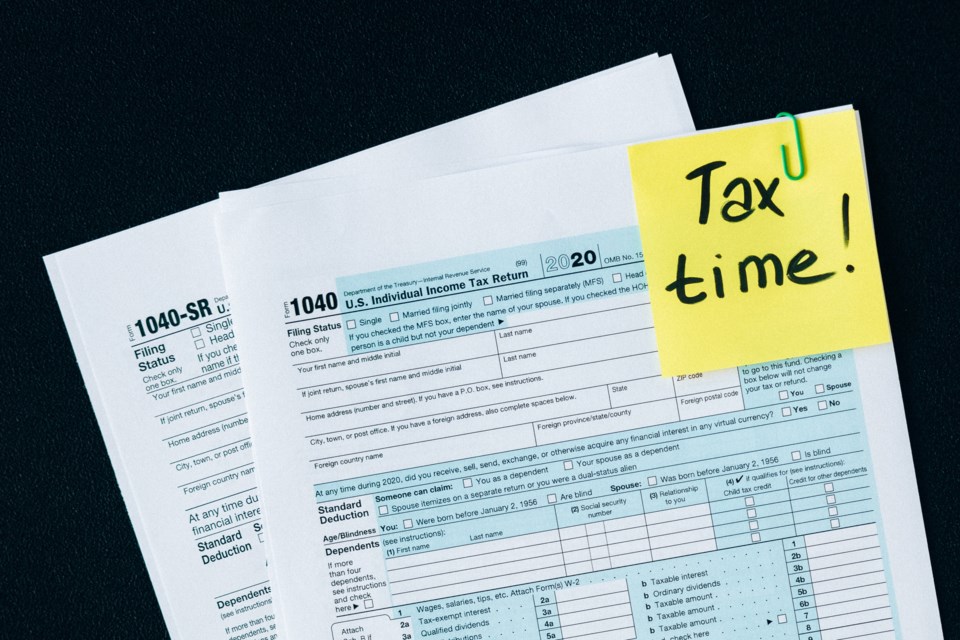Update 4:25 p.m.: The IRS announced late Friday that it will not require Coloradans to pay federal taxes on their 2022 TABOR refund.
“We, like millions of Coloradans, are breathing a sigh of relief that the IRS and federal government have stepped away from taxing our refunds this year. This ultimately is the best outcome for families and individuals and we will continue seeking out more ways to save people money,” said Gov. Jared Polis. “I will continue fighting to maintain this precedent that refunds under TABOR should never be taxed.”
Coloradans who have already filed can breathe a sigh of relief as no additional action is required. The full statement from the IRS can be found here.
Coloradans are encouraged to wait to file their taxes this year.
In 2022, Colorado taxpayers received a refund of $750 for a single-filer or $1,500 for joint-filers due to a refund from the Colorado Taxpayer’s Bill of Rights, or TABOR.
TABOR was amended to the state’s constitution in 1992 and limits the revenue withheld by the state. It also requires the state government to refund excess revenue back to the taxpayers.
In 2022, lawmakers refunded the money in the form of a check instead of through tax exemptions, tax credits or temporary income tax rate reductions.
With only months until tax filings are due and just as tax documents were delivered to taxpayers, the Federal Internal Revenue Service issued a statement announcing it is deciding whether that money should be taxed at a federal level.
“There are a variety of state programs that distributed these payments in 2022 and the rules surrounding them are complex. We expect to provide additional clarity for as many states and taxpayers as possible next week,” the IRS statement said.
Colorado isn’t alone, 18 other states have been asked to do the same.
But Colorado lawmakers are not standing for it. Several lawmakers including, Congress members Ken Buck, Joe Neguse, Lauren Boebert, Jason Crow, Yadira Caraveo, Diane DeGette, Brittany Petterson and Doug Lamborn and Senators John Hickenlooper and Michael Bennet, signed a letter urging the IRS to follow the same policy it has for the last 30 years.
During those three decades, the IRS has never considered TABOR refunds as taxable income.
“Expecting Coloradans to now pay part of these revenue payments back would impose a significant burden on Colorado taxpayers, introduce considerable compliance costs for taxpayers who did not anticipate having to add their TABOR revenue payments to their joint or single filings, and cost Coloradans hundreds of additional dollars in tax liability,” the letter states.
The Colorado Department of Revenue, or CDOR, does not believe the TABOR refunds should be subject to federal income tax.
“Colorado believes it is well positioned to make the argument that their refunds should be nontaxable. The state has used a refund mechanism for excess state revenues since the inclusion of the Taxpayer Bill of Rights (TABOR) as an amendment to the state constitution in 1992. TABOR requires the state to return "excess state revenue" to taxpayers through multiple refund mechanisms and Colorado has done so on numerous occasions and through various statutory methods since 1992. The IRS has never attempted to tax TABOR refunds in the past 30 years,” a statement from CDOR reads.
While CDOR is waiting for the IRS to make its decision, Colorado taxpayers are encouraged to wait to file their tax returns.
It is yet unclear how this will affect taxpayers.
CDOR said it was unable to comment on how many Coloradans have already filed or how the IRS’s decision could impact taxpayers. The spokesperson for CDOR said the department will issue a statement once more information is available.
In the meantime, CDOR is not accepting Income Tax Returns through the department’s Revenue Online website for the 2022 tax year until Feb. 22. Furthermore, the state’s ability to accept and queue 2022 individual tax returns has been delayed until Feb. 10, CDOR states on its website.



